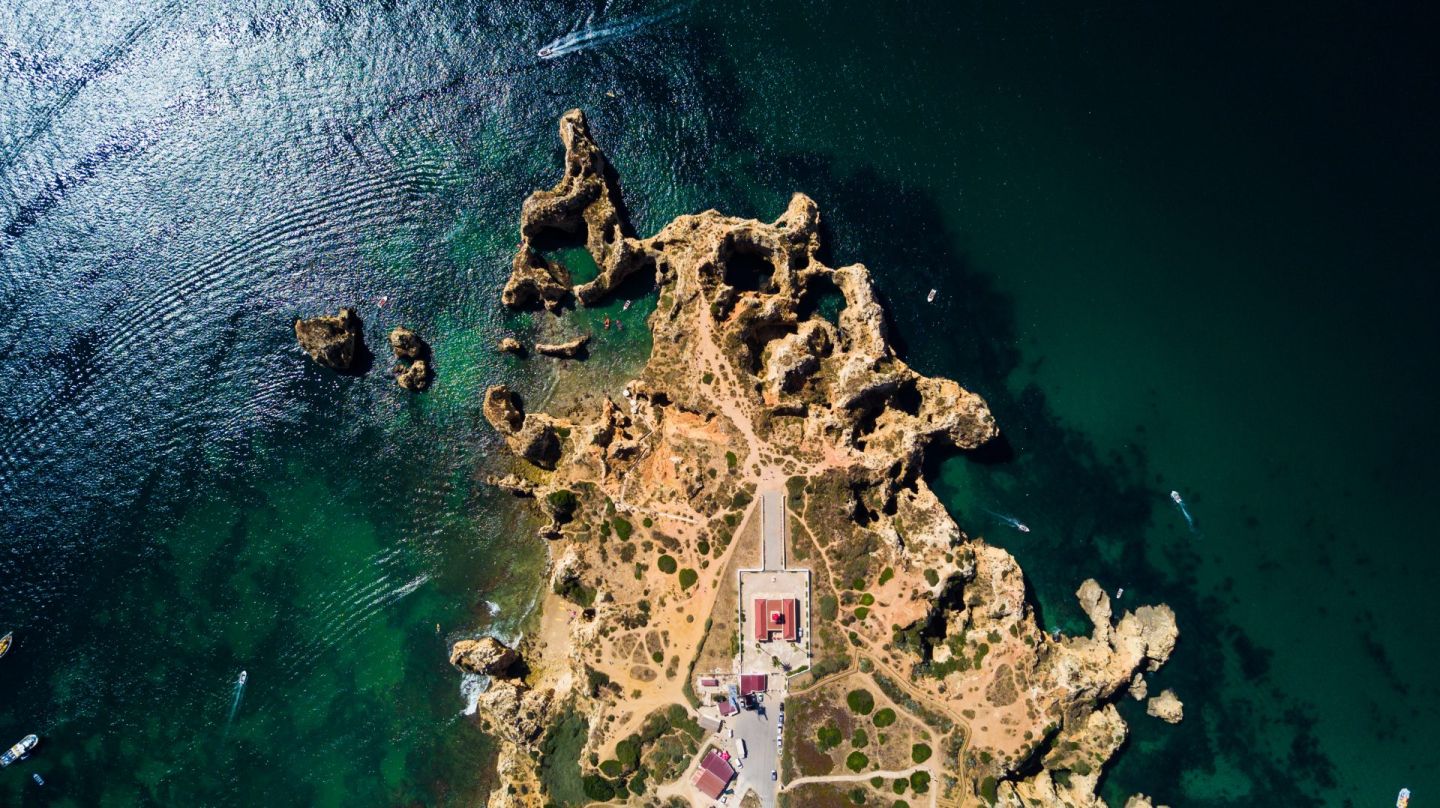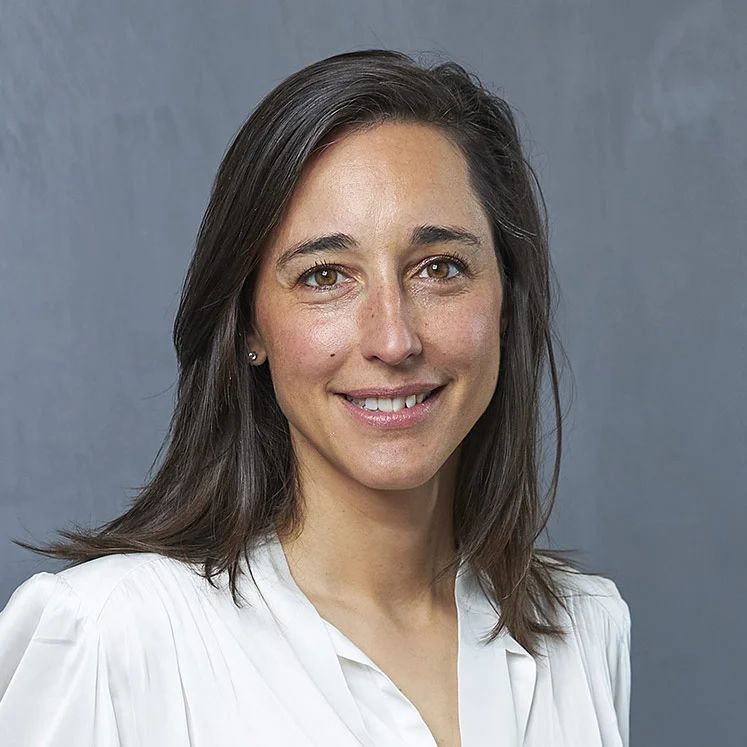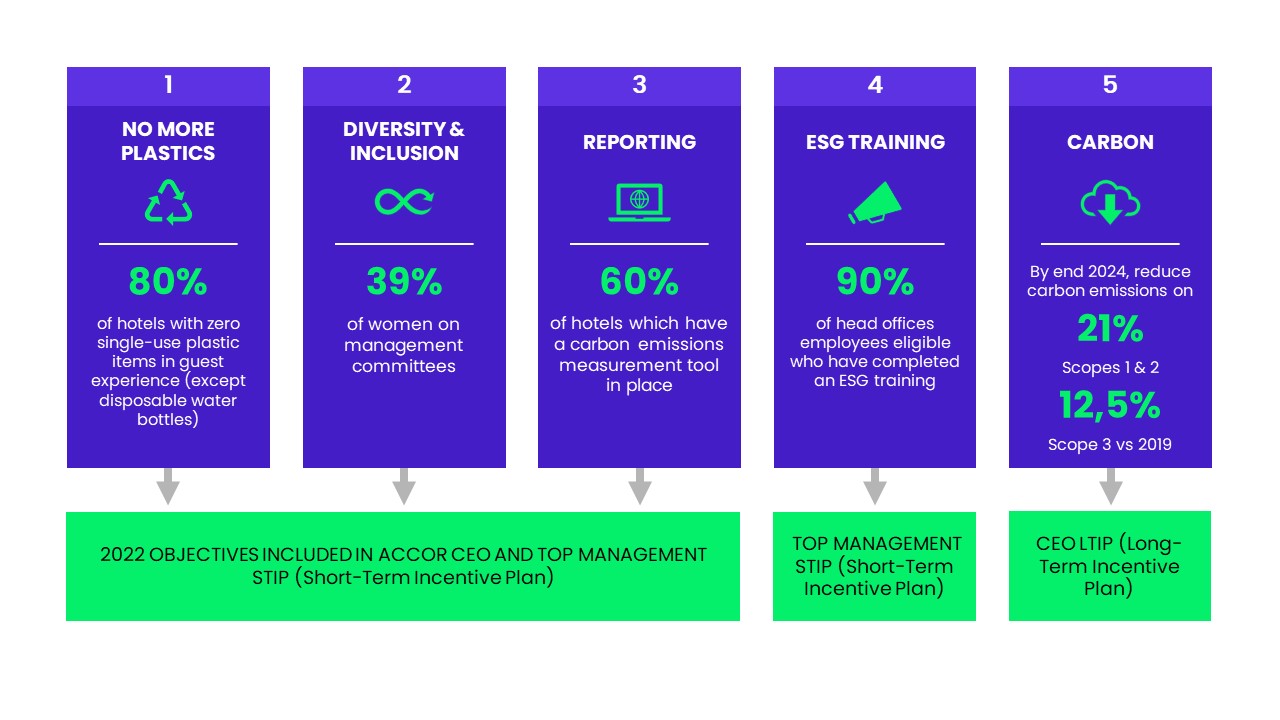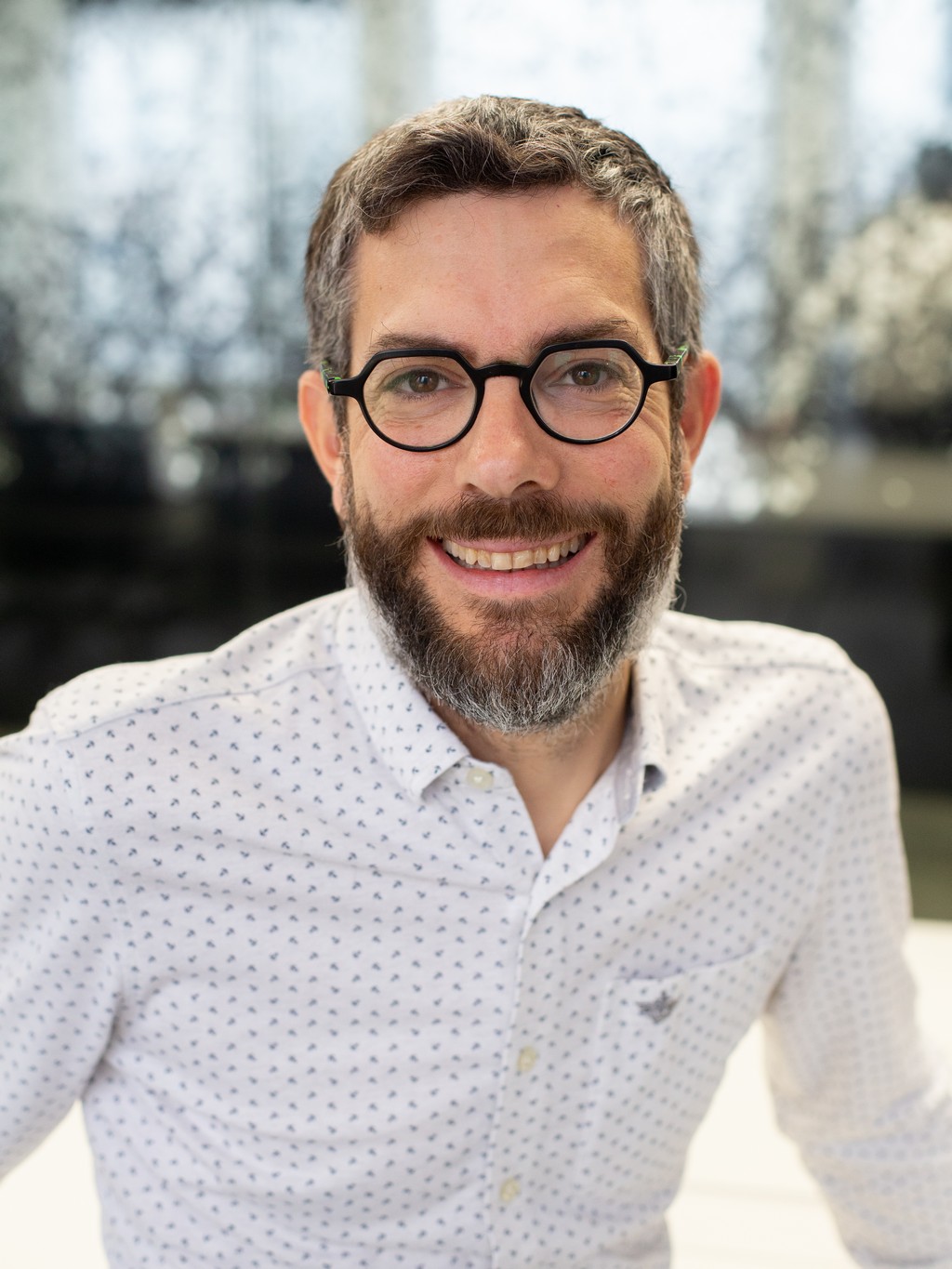France’s leading hotel group Accor accelerates its sustainable transformation
- Sustainability

The challenges of climate change, social issues and biodiversity preservation are having an ever-greater impact on business activity. In the tourism and travel sector, which is responsible for 9 to 12% of global greenhouse gas emissions1.
All stakeholders – customers, investors and governments – are calling for new, more sustainable and responsible ways of traveling.
It is therefore vital for companies in this sector to undertake drastic, high-impact changes to deliver on this. This is even more true for leading companies like Accor, which are best placed to drive real systemic change within their industry.
The strategic choices made by industry professionals have the power to influence all players in their upstream and downstream value chains: from real estate to agriculture, from catering and entertainment to the end traveler2.
69% of travelers
expect the tourism industry to offer more sustainable travel options3
Integrating sustainability issues into Accor’s Business Model
In 2021, Brune Poirson, previously Secretary of State to the Minister of Ecological and Solidarity Transition, joined Accor as Director of Sustainable Development. This new governance is a step towards enabling the Group’s ambitions to become a reality: defining and deploying a sustainable development action plan and integrating this into the heart of its business model and value proposition.
As a Group’s Executive Committee member, Brune Poirson can enable sustainability issues to carry real weight in strategic decisions, and thus initiate a genuine transformation.

If we want to succeed in integrating sustainability issues into the heart of our business model, sustainable development must be at the negotiating table, where the Group’s strategic decisions are made.
2022 marks the second stage in the Accor Group’s sustainable strategy: its operationalization. For this phase, Accor has chosen Wavestone’s support, aiming to leverage its experience in transforming large companies and organizations. Wavestone offers complementary skills to those provided by Brune Poirson and her teams on sustainability issues, an expertise Wavestone has been developing since the acquisition of Nomadéis in 2022.
The sustainable strategy defined by Accor in 2021 is designed to transform their core business, which is summarized by the following three strategic pillars:
- Staying: offering guests a sustainable experience by transforming hotels and their practices;
- Food: optimize the traceability of its supply chain, reduce food waste and offer an increasingly plant-based food offering, produced using regenerative and renewable agricultural practices;
- Exploring: anchoring hotels in local communities to generate a positive impact on the local environment and educate guests about respect for nature.
An ambitious plan supported by a transformation method
Since the start of this ambitious project at the end of 2021, with the support of Wavestone, the Accor group has been piloting the operationalization of its transformation, around three areas of transformation:
Achieving the Group’s transformation objective depends on its ability to involve all stakeholders, from the strategic functions at head office to the 5,400 hotels and the Group’s 290,000 employees.
2022 saw the spread of a genuine culture of sustainability within the Group, supporting by the changing mindset and skills of employees. In particular, Accor deployed a “School for change” platform, which enabled 97% of head office employees to be trained by the end of 2022. Once head office staff were trained, the aim is to train the employees closest to the field, starting with hotel managers.
To give impetus to a new vision of performance, Accor has taken several steps to gradually place extra-financial performance on the same level as financial performance- creating a Performance Department within the Sustainable Development Division, introducing financial tools indexed to social and environmental objectives, and a launching a variable compensation system based on sustainability objectives for managers and teams.
Among these objectives, Accor has defined its trajectory to the global carbon neutrality by 2050 target, with intermediate deadlines validated by the Science Based Targets initiative. By 2024, carbon emissions will have to be reduced by 21% on scope 1 and 2 (direct greenhouse gas emissions and indirect emissions linked to energy consumption) and by 12.5% on scope 3 compared with 2019 (other indirect emissions). This target for 2024, for example, has been included in the variable compensation of Accor’s CEO.
Ultimately, the approach aims to transform hotels in depth, so as to genuinely alter the social and environmental impact of their activities in the areas where they are located.
However, setting objectives for hotels is not enough to ensure that the strategic changes defined by the Group are implemented. To succeed in this challenge, their hotels need to be given close support and concrete solutions to help them achieve their objectives.
For example, to achieve the objective of eliminating plastic, this support is all the more important because, while some actions are easy to implement, such as eliminating shampoo bottles in favor of dispensers, other sources of plastic use are more difficult to reduce (e.g. toothbrushes, soles of slippers…).
The project to eliminate single-use plastics in the customer journey identified 46 products to be eliminated or replaced, and 49 new references were created using alternative materials that comply with external certifications (Forest Stewardship Council -FSC®- or Ok compost Home, for example).
With regard to the carbon target, the following have been made available:
- Efficient tools for measuring and monitoring energy consumption and carbon emissions for each hotel ;
- Solutions to decarbonize their activities:
- by first acting on the demand side of the equation: making best practices available to encourage energy and water efficiency;
- by taking action on the supply side: green energy contracts, energy performance contracts, access to low-carbon products and services via the central purchasing unit…

2023, consolidate and launch new projects
2022 has enabled the Group to anchor sustainable transformation at the heart of its business model and to give impetus to numerous projects. Despite this, profound and lasting transformation of a group of this scale takes time: the ambitious challenge for 2023 will be to keep up the pace of transformation on the various projects initiated.
New projects include the creation of a food waste management policy, which will start by providing hotels with tools to measure the waste they produce, before moving towards the ultimate goal of profoundly transforming meal design. The development of a sustainable mobility policy will also encourage customers to use more environmentally-friendly modes of transport to get around the hotels and the local area.
While the design and deployment of solutions in the field require a great deal of energy, communication and performance also have their work cut out for them as they aim to identify the most relevant and then design the solutions that enable certification to be obtained.
What’s more, this transformation must include social issues, as policy of human rights, social mobility and solidarity that goes hand in hand with environmental issues.
This mission has made it possible to initiate real change at Accor, which is the leader in its industry. It means taking part in making the hospitality business more sustainable, and working on our own scale for a better world.

1 Systemiq 2022 report “Better travel & tourism, better world”.
2 Universal Registration Document 2022 – Accor.
3 WTTC 2021 Report & Accor 2022 Studies.